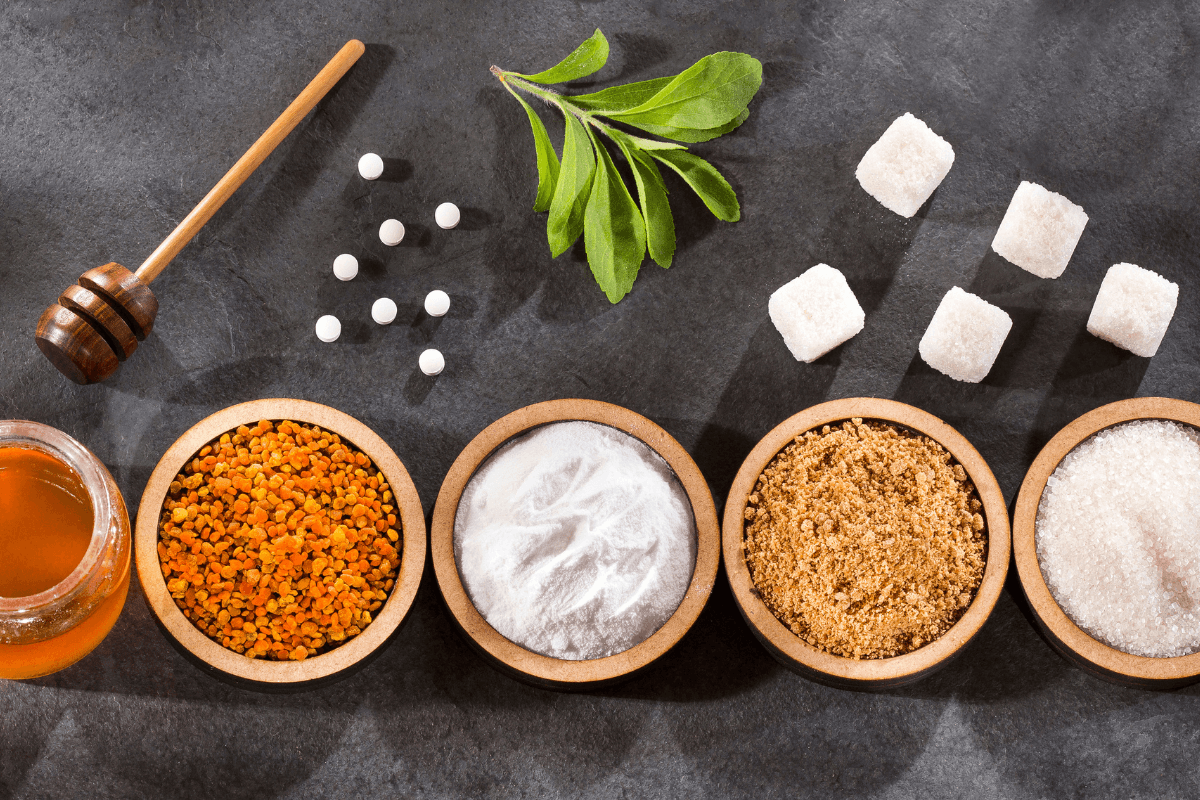When you’re craving something sweet, choosing the right sweetener is crucial for maintaining a healthy lifestyle. With an overwhelming variety of options available, from natural to artificial, it can be difficult to know which sweeteners are truly the healthiest. In this article, we’ll explore the different types of sweeteners and provide expert tips to help you make informed decisions that align with your health goals.
Understanding the Types of Sweeteners
Sweeteners can be broadly categorized into three groups: natural, artificial, and sugar alcohols. Each type comes with its own set of benefits and potential drawbacks.
Natural Sweeteners
Natural sweeteners originate from plants or fruits and are often marketed as healthier substitutes for refined sugar. Some popular natural sweeteners include:
- Honey: Rich in antioxidants and enzymes, honey has been used for centuries not only as a sweetener but also for its medicinal properties. However, it’s still high in calories and sugar, so moderation is key.
- Maple Syrup: Originating from the sap of maple trees, this sweetener contains minerals like zinc and manganese. It has a glycemic index (GI) lower than that of sugar, which means it results in a slower increase in blood sugar levels.
- Stevia: Harvested from the leaves of the Stevia rebaudiana plant, stevia is a type of zero-calorie sweetener that doesn’t affect blood sugar levels. It’s an excellent option for those looking to reduce calorie intake while still enjoying sweet flavors.
- Agave Nectar: Obtained from the agave plant, this sweetener has a lower GI than sugar, making it a top choice for people with diabetes. However, it’s high in fructose, which can lead to increased fat storage and other health issues if consumed in excess.
Artificial Sweeteners
Artificial sweeteners are synthetic compounds designed to imitate the taste of sugar without the calories. Common examples include:
- Aspartame: Widely used in diet sodas and sugar-free products, aspartame is low in calories and hundreds of times sweeter than sugar. However, some studies suggest it may have negative health effects when consumed in large quantities.
- Sucralose (Splenda): Another popular artificial sweetener, sucralose is heat-stable and often used in baking. It’s calorie-free but has been linked to changes in gut bacteria, which could impact metabolism and digestion.
- Saccharin: Among the first artificial sweeteners, saccharin is calorie-free and very sweet. Although it was once thought to be carcinogenic, it has been shown to be safe for consumption.
Sugar Alcohols
Sugar alcohols are a type of carbohydrate naturally present in fruits and vegetables. They’re lower in calories than sugar and don’t trigger a quick increase in blood sugar levels. Common sugar alcohols include:
- Erythritol: This sugar alcohol is almost calorie-free and has a mild sweetness. It doesn’t cause the digestive issues associated with other sugar alcohols, making it a popular option for those on low-carb diets.
- Xylitol: Present in many sugar-free gums and candies, xylitol contains fewer calories compared to sugar and has dental benefits. However, it can trigger digestive discomfort if consumed in large amounts.
- Sorbitol: Used in sugar-free candies and ice creams, sorbitol has a sweetness level of about half that of sugar. Like other sugar alcohols, it can cause digestive issues if eaten in excess.
Expert Tips for Choosing the Healthiest Sweetener
With so many options on the market, how do you choose the healthiest sweetener for your needs? Here are some expert tips to guide you:
Consider Your Health Goals
If you’re managing diabetes or looking to reduce calorie intake, natural sweeteners like stevia or sugar alcohols like erythritol might be the best option. For those focusing on reducing processed foods, honey or maple syrup could be more suitable, though they should still be used sparingly.
Watch Out for Hidden Sugars
Even natural sweeteners can contribute to excessive sugar intake if not used in moderation. Be mindful of the total amount of sweeteners you consume throughout the day, as it can accumulate rapidly, especially in processed foods and beverages.
Be Aware of Potential Side Effects
Some artificial sweeteners, including aspartame and sucralose, have been linked to potential health concerns, including digestive issues and changes in gut bacteria. If you’re sensitive to these effects, it might be wise to opt for natural alternatives.
Experiment with Different Sweeteners
What works for one person may not work for another. Try experimenting with different sweeteners to find the one that best suits your taste preferences and health needs. For example, if you enjoy baking, consider using sucralose or erythritol, which perform well under heat.
Prioritize Whole Foods
Whenever possible, choose whole foods that are naturally sweet, like fruits, to satisfy your sweet cravings. These foods provide additional nutrients and fiber that processed sweeteners lack.
Takeaways
The healthiest sweetener for you will depend on your individual health goals, dietary needs, and personal preferences. While natural sweeteners like stevia and sugar alcohols like erythritol offer low-calorie options without spiking blood sugar levels, moderation remains crucial. By staying knowledgeable and making thoughtful decisions, you can savor sweet treats while still maintaining your health.
Frequently Asked Questions (FAQs)
What is the healthiest sugar?
The healthiest sugar option is natural, unrefined sources like honey or maple syrup, which contain some nutrients and have a glycemic index (GI) that is lower compared to refined sugar. However, these should still be used in moderation due to their high sugar content.
Can babies have maple syrup?
Babies under 12 months should not have maple syrup due to the risk of botulism, a rare but serious illness. After one year of age, it can be introduced in small amounts as part of a balanced diet.
What is a zero sugar diet?
A zero sugar diet involves eliminating all forms of added sugars and often natural sugars, focusing on whole foods, including vegetables, lean proteins, and healthy fats. This diet aims to reduce sugar intake to improve overall health and manage conditions like diabetes.


